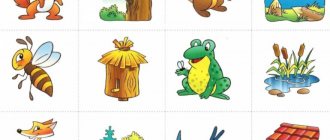Good afternoon, dear readers! Today we will talk about a very popular entertainment at present. Learning English through a quest is a good idea. Quest has taken one of the main places in the field of entertainment. There are also adults and children's quests. Let's figure out what he is. Quest (from the English quest) in its concept is an adventure game. This is one of the genres of computer games, which is an interactive story with the main character. The quest gradually moved into real life. The quest is an adventure where the goal is to find something or someone planned by the author in advance. The obstacle course that accompanies the entire game can be absolutely varied.
Why is the quest so popular?
Basically, quests related to extreme and situations that even cause fear have become popular. However, very easily and competently the game can be turned into a friendly, educational direction. For example, teaching English. This game promotes the development of communication in a foreign language. So, yes, we found out that this is a new trend of our time and quite exciting.
However, if you look closely, everything new is well forgotten old. You can remember the exciting relay races, lightning strikes, and station assignments from our Soviet childhood. There are overlapping moments and plots. And in our childhood, it was really interesting and exciting - to pass the tests, win and also achieve the goal - to receive a prize. There are many types of quests. For example, an example for children can be found in this book . Also here is an interesting example .
And now these relay races have returned to us again, only modernized using the plots of computer games. Why have they become so tempting now? Psychologists say that the quest has a strong effect on the nervous system. Receiving strong emotions, a person often even begins to feel an increased taste for life. And the more complex and even more terrible it is, the faster adrenaline synthesis occurs. For example, quests of this type. It is responsible for the production of the pleasure hormone - dopamine.
It is common knowledge that modern life creates a lot of stress for people. And often he needs to abstract himself and find something distracting. The quest is quite suitable for this. Such fear games can help get rid of depression. But we must remember that this will be temporary. And if a person cannot find the strength to switch to something more useful, he will need more serious replacements. You need to be careful in your hobbies. We observe the “golden mean” and “everything should be in moderation”
First, a little tediousness: what are the benefits of quests for leveling up your language?
Quests are a special genre of computer games in which the main gameplay revolves around a plot narrative and direct interaction with various objects.
It is the combination of these two features that makes quests an excellent tool for learning English.
The plot part involves and makes you empathize with the characters. The player listens to dialogues and reads text. Quests have a better effect on memory because they stimulate the creation of associations.
In Dale's learning pyramid, quests can be placed on the middle rung next to observing a demonstration and observing a specific activity. After all, in essence, you control the actions of a character who fully interacts with the world.
Thus, regular reading gives only 10% of memorization, watching videos - 30%, and quests and other games - 50%. Which is very good for a form of leisure.
“Point and click” system or interaction with objects allows you to learn vocabulary. In many games of the genre, you just need to hover the cursor over an item or click on it, and its description will open. Here, for example:
The player always has a bunch of different items in his inventory, the descriptions of which are also composed with a fair amount of humor and ingenuity.
In addition, in quest mini-games like “search for an object,” the player must find these very objects by their name. Naturally, in English. Most of the items to search for will be quite familiar, but not everyone will definitely be familiar with the names. So arm yourself with a translator on your phone or immediately type the words into a dictionary app for further study.
Usually it goes like this:
1. You see an unfamiliar word on the screen and have no idea what item you need to find. In this case, we took “garden hose”.2. Look up the word in the dictionary on your phone. In our case, the phrase “garden hose” means “garden hose”.
3. Then simply enter it into the ED Words application - the phrase will appear every day until you remember its meaning. Profit!
But enough about the tediousness. Let's look at the best quest games that you can and should use to learn English.
Teaching English through a quest
However, there is a wonderful advantage in such games. It is known that any victory, even in a game, is a good way to develop the habit of success. There is no need to devalue your victories in such entertainment. It is from such small achievements that a golden reserve of self-confidence and self-esteem is built.
Upon completion of the quest, players must have an exclusively competitive spirit of sport. At the end of the game, it is recommended that all participants in the quest thank each other and congratulate each other. This is regarded as recognition of everyone's contribution to the victory.
Why not try a quest, as it is a fashionable trend and quite effective in learning English and any other foreign language. The interesting point is that participants will not only repeat the material covered. But without realizing it, they will work harder to remember new things during the game. After all, as they understand, their victory in the game will depend on this.
Therefore, this approach can be recommended to teachers and tutors. Of course, undoubtedly, scrupulous painstaking work must initially be carried out in drawing up a plan and materials necessary for conducting an educational game. The age characteristics and level of language knowledge of future participants will also be of great importance. You can use a lot of wonderful materials to create a quest. For example, I recommend the manual . And also here is a very good publication with several levels “ENGLISH. Fun tasks for A's at school .
Deponia
Another quest series. But this time in the setting of a kind of dystopia. Rufus, the main character of the story, considers himself an inventor and wants to fly away from his home planet, which has turned into one big dump.
This desire leads Rufus to new acquaintances, a whole series of stupid situations, and it also turns out that the entire Deponia - the planet on which the hero lives - is in danger.
Overall, a pretty funny quest with unusual humor and very non-standard gameplay. Or rather, the gameplay itself is quite ordinary - the long-known “point and click”, but the use of most items in the inventory can cause some surprise.
In one episode, Rufus will have to put a sock on a doorknob to open the door, and in another, he will have to make coffee out of chili peppers. It's weird, but fun.
The original game was published in German, but the English localization is very, very good. She competently conveys the features of the original idea. In addition, the humor remained at the same level - and this is probably one of the most important features of the series.
Difficulty of English:
6 out of 10.
Level:
Intermediate.The dialogue in Deponia is quite simple grammatically, but slang and colloquial words are often used. Yes, they make the atmosphere of the game richer and more interesting, but sometimes they interfere with full perception, because you have to look into the dictionary.
Nuances of organizing a quest in English
When creating such a quest, it is recommended to adhere to the framework of the language learning program. You need to understand that a child will not learn the language for two, three, even six years according to the curriculum. This must also be accepted in order to create the child’s motivation in learning the language. Also, in learning a language, an individual approach to each child is preferable. And the quest in this case is the ideal tool in this process.
And another remarkable fact is that it is possible to involve students in the educational process even with poor academic performance. It is a well-known fact among teachers that information in a children's group is better absorbed during the game. Therefore, it is a good idea to adopt such processes. And spend time during training from time to time. I would also recommend the “English Language” manual to prepare for the game . 2-4 grades. Educational games with cards. Guidelines" .
It is better to conduct such quests not every day, but 1-2 times a month. This will be a more effective option in language learning. I propose to consider the synopsis of the quest using knowledge of the English language.
- It is necessary to distribute to the children a sheet with tasks (just the quest itself).
- What follows is an explanation of the rules of passage.
- Advice: it is better to test a previously created quest on a small group of students. This is done in order to immediately identify all shortcomings and eliminate them.
- It’s better to present the plot itself in parts, rather than announce all the nuances at once.
- Next, without forgetting about the logic of the game, you need to try to make the riddles parallel so that everyone present can participate.
- When creating a quest, it is necessary to come up with the main problem and smoothly lead the players to its solution.
- It is recommended to use as many tools and materials as possible when conducting the quest.
Nancy Drew
A huge line of computer games, which as of February 2020 has as many as 33 full-fledged stories!
The games are about a young detective who investigates strange and unusual cases. She studies evidence, interrogates suspects and witnesses, and solves riddles. In general, he is engaged in ordinary detective work (this is a surprise).
The beauty of the game is in the interaction with objects. There are simply a huge number of them in each episode. Moreover, most of them are thematic. For example, in the series Ransom of the Seven Ships, where Nancy is looking for the treasure of a sunken ship, there are a lot of objects and dialogues related specifically to marine themes. So you can learn quite thematic vocabulary right during the game.
Of course, a whole team of scriptwriters and editors is working on the games, and since 1998 they have changed their entire team more than once. Therefore, the style of English in different series will be different. In our subjective opinion, in later games in the series the English is better - the dialogues are more precise and logical, the vocabulary in them is more extensive and interesting. But keep in mind that the writers of the series love complex sentences.
Difficulty of English:
from 4 to 7 out of 10 (depending on the series)
Level:
Intermediate - Upper-intermediate.An excellent line of quests for improving a wide variety of vocabulary. You will have to interact with objects a lot, so the names are remembered almost by themselves.
Example of preparation for a quest
For example, a simple quest requires little. Namely: large format paper (Whatman paper), colored markers, markers, scissors. Also several separate sheets of paper, pens, pencils, possibly a projector. Sometimes a leader is needed. And you will also need, of course, to develop your imagination a little. The recommended number of participants in one team depends on the scale of the quest.
The topics can be any. When looking for a topic, you can start from the material covered in class. For example, the legend (plot) could be as follows: the students were kidnapped by pirates and are in the hold on board a ship.
Quest specifics:
- First, all players are given special sheets of tasks.
- There may be a few tasks, all of them are designed for 15-20 minutes.
- Players need to fill out several fields on the task sheet (quest sheet). For this purpose, all participants must be provided with pens and pencils.
- Incentive system - winning teams receive prizes: you can come up with a fun, interesting gift, for example, a tourist trip to Planet England.
- For each completed task, players receive points.
The quest progresses as follows: participants receive task sheets and read the legend. While reading the legend, players understand that they are participants. A competitive game awaits them. And then you can announce the start of the game. The presenter needs to monitor the progress of the game and compliance with all the rules.
I also recommend using the following literature to compile tasks for the quest. For example, I will give as an example the publication “Grammar Games: Nouns and Pronouns” . Also useful tutorials here and here .







